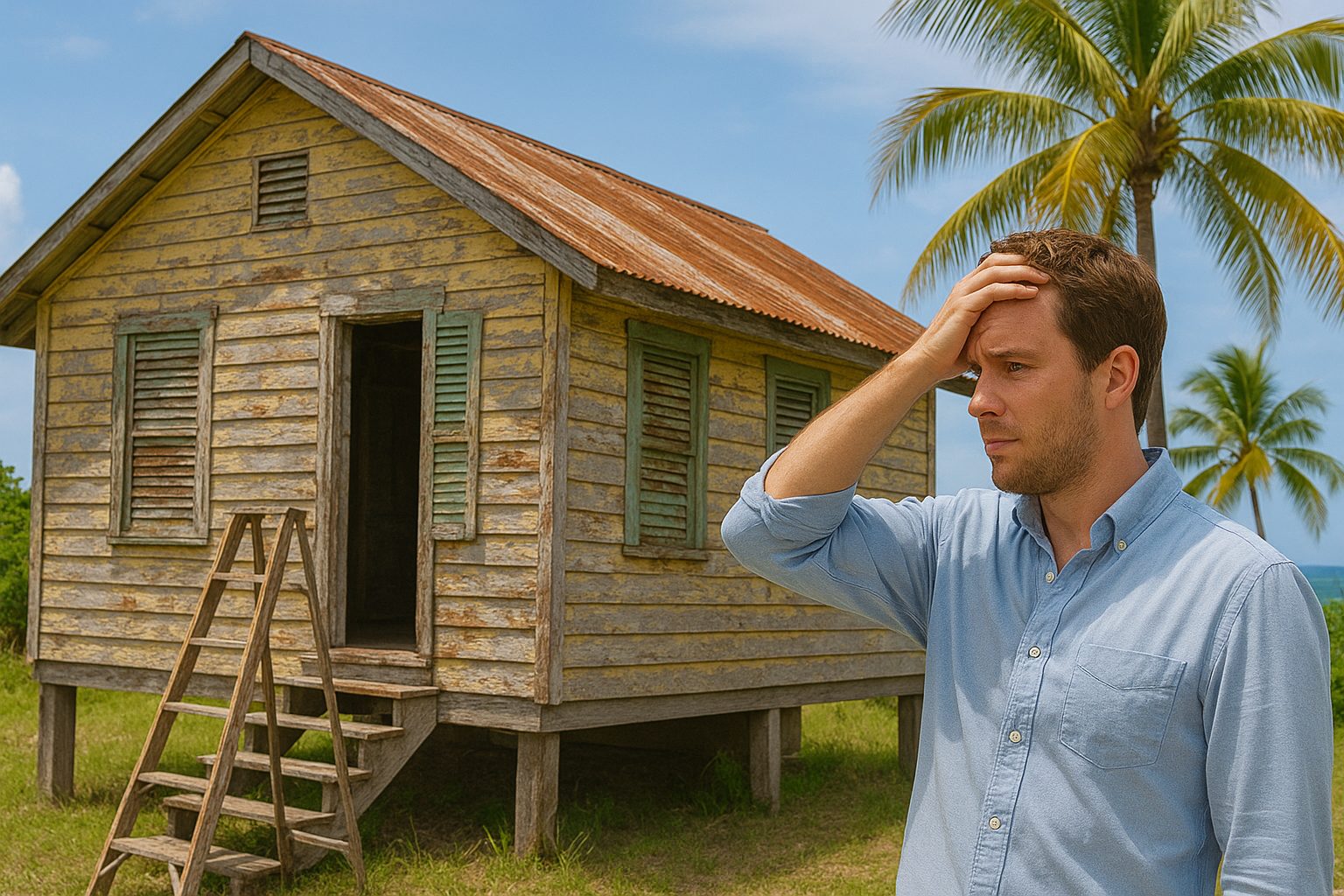Dreaming of a little slice of paradise with a rusty tin roof and mango tree in the yard? You’re not alone. Florida Keys fixer-uppers have a certain charm—and for many buyers, the idea of restoring a conch cottage or canal-front bungalow is irresistible.
But before you grab a hammer and head south, there are a few things you should know. Island life has quirks, and fixing up a home here is not always as breezy as the palm trees suggest.
1. Old Bones and Hidden Surprises
Most homes in the Keys weren’t built yesterday. In fact, many are from the 1950s or earlier. That’s part of the appeal, of course. But with charm comes… surprises.
Think knob-and-tube wiring, brittle plumbing, or DIY fixes from someone’s second cousin who “used to do construction.” Before you fall in love, bring in a trusted inspector who knows what to look for—especially when it comes to saltwater corrosion, termites, and structural wear.
Watch out: “Good bones” in a listing description may just mean “there’s a lot of work to be done.”
2. Flood Zones: Know Before You Blow Your Budget
The Florida Keys are surrounded by water. That’s great for boating—not so great for your insurance premium.
Many older homes sit in flood zones. If you’re planning renovations, especially major ones, elevation requirements could kick in. That means raising the structure or bringing it into compliance with today’s floodplain rules. Either way, it’s pricey.
Before you buy, ask:
-
What flood zone is the property in?
-
Was the home built before or after FEMA flood maps?
-
What will the insurance premiums be?
Your budget will thank you later.
3. Permits Take Time (And So Does Everything Else)
Island time isn’t just a slogan—it’s real, especially when you’re dealing with permits. Renovation projects in Monroe County, or within incorporated cities like Marathon or Key West, often involve detailed applications, inspections, and lots of patience.
Working with a local contractor helps. They know the drill and can navigate the system. If you try to do it solo or with a mainland crew unfamiliar with Keys codes, you may be in for delays—and headaches.
Reminder: That breezy attitude you moved here for? You’ll need it while waiting on approval.
4. ROGO and Zoning Rules Can Stall Your Plans
Thinking of adding on? Or maybe tearing down and rebuilding? Not so fast. The Keys are governed by something called ROGO—the Rate of Growth Ordinance. It’s meant to protect the environment and limit overdevelopment.
In short, if your property doesn’t already have a “buildable” status, you could wait years (yes, years) to get permission to build or even expand.
Before you buy a vacant lot or fixer-upper with dreams of building big, double-check:
-
Whether there’s an existing ROGO exemption
-
The property’s zoning (residential, mixed use, etc.)
-
Any local restrictions in place for that island or community
5. Island Upkeep is a Full-Time Job (Even If You’re Not There Full Time)
Salt air is a beast. It eats through metal, paint, and patience. Owning a home in the Keys means regular maintenance—more than most places. Roofs wear faster. AC systems work harder. And that beautiful deck? It’ll need sealing often.
If the home is a vacation rental or second home, you’ll also want a reliable local handyman or property manager. Otherwise, small problems can grow fast in this climate—kind of like the mildew on your porch cushions.
Final Thoughts: Buy Smart, Breathe Deep, and Embrace the Quirks
Fixing up a home in the Florida Keys can be deeply rewarding. You get character, charm, and that unbeatable island lifestyle. But it’s not a decision to take lightly.
Do your homework. Talk to local experts. And plan for both expected and surprise costs. Because in the Keys, the only thing guaranteed is the sunset—and even that depends on the clouds.
Thinking of buying a fixer-upper in paradise?
Let’s chat before you make the leap. I’ll help you find the right place—and the right questions to ask—so your dream home doesn’t turn into a money pit with ocean views.


 Facebook
Facebook
 X
X
 Pinterest
Pinterest
 Copy Link
Copy Link


